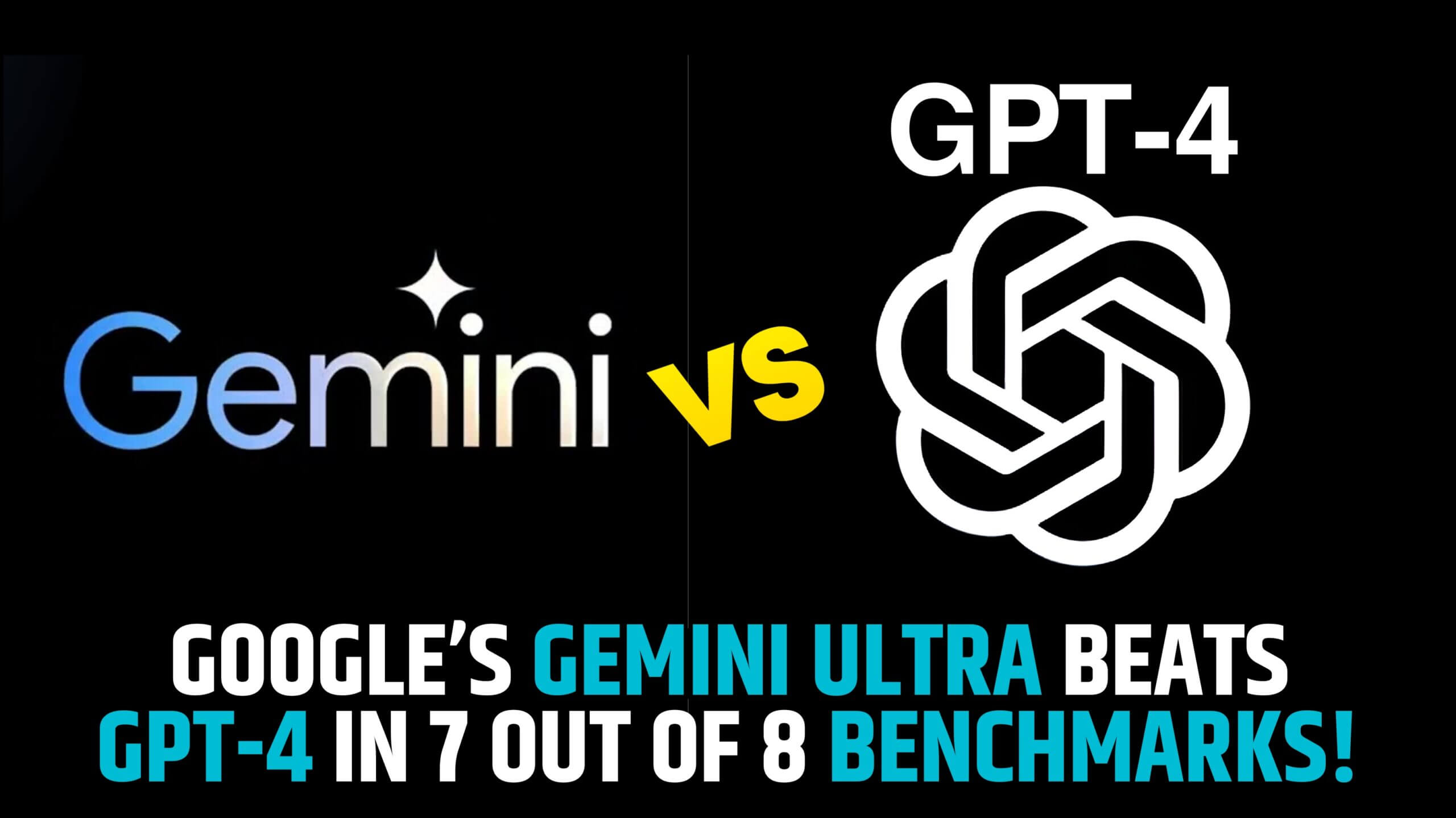In a significant stride for the field of artificial intelligence, Google’s latest language model, Gemini Ultra, has reportedly outperformed OpenAI’s highly anticipated GPT-4 in 7 out of 8 benchmark tasks. This news comes as language models continue to push the boundaries of human-like understanding and interaction.
According to Google, Gemini Ultra excelled in diverse areas including code writing, general knowledge, mathematics, and reasoning, surpassing GPT-4’s capabilities in each. Additionally, Gemini Ultra achieved a groundbreaking feat, becoming the first language model to surpass human experts on the MMLU (massive multitask language understanding) benchmark. This benchmark evaluates a model’s ability to tackle a wide range of language-related tasks, demonstrating Gemini Ultra’s exceptional versatility and adaptability.
While specific details regarding the benchmarks and GPT-4’s performance are not yet available, experts see this development as a significant milestone in the ongoing race to develop increasingly powerful and sophisticated language models.
Big news.
The most powerful GPT competitor, Gemini Ultra, will be released on Wednesday. Google confirmed it.
Ultra beats GPT-4 in 7 out of 8 benchmarks:
HumanEval (Code)
Gemini Ultra: 74%
GPT-4: 67%MMLU (General)
Gemini Ultra: 90%
GPT-4: 86.4%GSM8K (Math)
Gemini Ultra:… pic.twitter.com/gSyq8tNIYy— Lior⚡ (@AlphaSignalAI) February 5, 2024
What Makes Gemini Ultra Different?
Google attributes Gemini Ultra’s success to several key innovations:
- Advanced architecture: The model leverages a novel architecture that allows for more efficient information processing and integration, leading to improved performance on diverse tasks.
- Focus on understanding: Unlike previous models that primarily focus on generating text, It emphasizes understanding the underlying meaning and context of language, leading to more accurate and relevant responses.
- Instruction-tuned training: The model is trained on large datasets specifically designed to follow instructions and complete tasks, making it more adept at real-world applications.
Also Read Google Rebrands Bard Chatbot As Gemini, Here Are It’s Exiting Features
Beyond Benchmarks: Real-World Implications
While benchmarks offer valuable insights into a model’s capabilities, the true impact of language models lies in their real-world applications. Potential uses for it include:
- Code generation and analysis: Assisting programmers with writing, debugging, and understanding code.
- Personalized education: Tailoring learning materials and providing individual support to students.
- Advanced customer service: Offering intelligent and empathetic support to customers by understanding their needs and responding accordingly.
- Scientific research: Accelerating scientific discovery by analyzing vast amounts of data and generating new hypotheses.
Looking Ahead: The Future of Language Models
The competition between Google’s Gemini Ultra and OpenAI’s GPT-4 is likely to continue, pushing the boundaries of what language models can achieve. This continued development holds immense potential for various fields, and it will be exciting to see how these models transform how we interact with information, learn, and solve problems in the future.
It’s important to note that while these advancements are impressive, ethical considerations and potential biases need careful attention. Open and transparent development, along with responsible deployment, will be crucial to ensure that these powerful tools benefit society as a whole.




